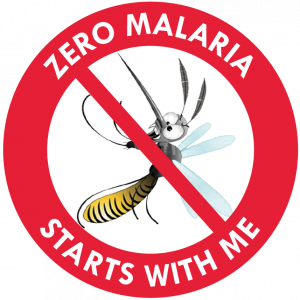By Foday Moriba Conteh
Malaria is said to be one of the major cause of deaths in Africa. The strides that our country has made in the fight to end malaria could understandably be overlooked against the backdrop of the COVID-19 pandemic.
Perhaps more so than ever, however, efforts must be maintained and experience lean on in fighting malaria to address emerging threats to citizens’ health and the systems we have in place to protect it.
World Malaria Day presents a moment to acknowledge how Sierra Leone has made strides, and defied the odds, against the world’s oldest disease.
It is now one year since this country launched its national Zero Malaria Starts with Me campaign, announced by Professor Alpha T. Wurie, Minister of Health and Sanitation.
Zero Malaria Starts with Me – also known as “Malaria E Don Wan Dae Na Mi Han” in Sierra Leone – is a continent-wide movement to eliminate malaria that encourages all members of society to take responsibility for the fight and contribute in any way possible to the goal of malaria elimination.
According to the World Health Organization (WHO), this country is one of seven countries in sub-Saharan Africa where more than a quarter of the population is infected with malaria at any given time, accounting for nearly four in ten hospital consultations countrywide.
Despite the challenge, Sierra Leone achieved significant declines in confirmed malaria deaths between 2010 and 2018, from 8188 to 1949 – the highest reduction in Western Africa.
This is partly as a result of sustained commitment from Government to provide essential prevention and treatment to everyone and it is partly due to the incredible efforts nade by community leaders and the population at large to promote the use of these essential interventions.
A spirit of inclusion, solidarity and collective responsibility must be built on and reinforced for a brighter, malaria-free future.
Sierra Leone is deeply committed to ending malaria.
It is the only country in Africa to have rolled out Intermittent Preventive Treatment in infants (IPTi) at the national level and free malaria treatment is available to all.
A mass distribution of bed nets is ongoing geared towards equipping every household with a tool proven to dramatically reduce the risk of malaria infection. Everyone in Sierra Leone must use these bed nets and sleep under them each and every night of the year.
To achieve further progress in the fight against malaria, it must now be ensured that all members of society can access the right information and the treatments available to them with confidence.
Government public health interventions have clearly played an important role in limiting the impact of malaria, yet so too has the media.
Earlier this year, a new media coalition sought to amplify the reach and the impact of the Zero Malaria Starts with Me campaign by supporting journalists to step up and play their part in the fight against malaria.
Through high-quality and factual reporting on malaria, journalists can prevent misinformation and empower Sierra Leoneans everywhere to adopt life-saving malaria interventions.
It has been accepted that fighting malaria is a team effort and each and every citizen of Sierra Leone can use their voice and take action to protect communities from the disease.
Recently, a delegation from the Ministry of Health & Sanitation and Speak Up Africa met with local councils, health authorities, paramount chiefs and religious leaders in the Kono, Kambia and Moyamba districts.
Paramount chiefs and religious leaders are vital sources of information for vast numbers of people and their role in supporting health initiatives must be celebrated and further bolstered in the coming months and years.
Efforts to limit the spread of COVID-19 are necessary to protect our health systems, but that should not allow the disease to compromise access to life-saving malaria prevention, diagnosis and treatment.
In order to achieve a Sierra Leone free from malaria, an unprecedented level of human and financial resources must be necessary to make serious headway towards the goal of malaria elimination by 2030.




